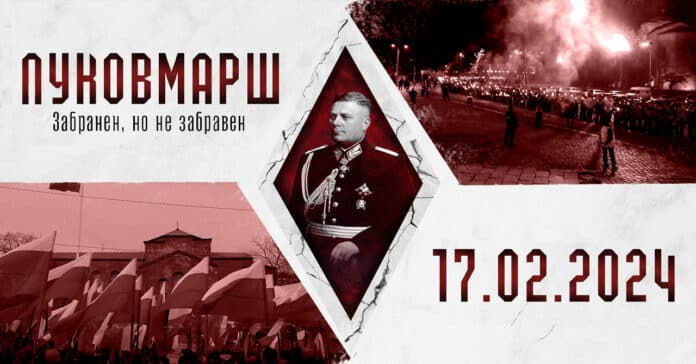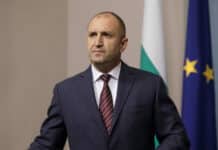
Lukov March remains one of the events in Bulgarian public life that gathers hundreds of participants under its banners every year. It is organized by the Bulgarian National Union and is dedicated to General Hristo Lukov. This is a figure whose historical role continues to cause controversy and debate about the Bulgarian past. The march will take place on February 17 at 17:00 p.m. at the pillars of the National Palace of Culture.
General Lukov, leader of the Union of Bulgarian National Legions in the 1930s and early 1940s, was killed by communist partisans in 1943. His death and legacy are the basis of the annual march, which attracts the attention not only of the Bulgarian society, but also of the international community.
The motto of this year’s edition is „Forbidden but not forgotten“, which strongly reflects the sense of resilience among the organizers and participants in the face of numerous attempts to ban the event by the authorities and various social groups. The cases won against the Sofia Municipality underline the determination of the organizers to hold the march despite public opposition and legal disputes. Organizers of the event shared on social media:
„The motto we have chosen for this year’s Lukov March embodies the organisation and conduct of the march over the past decade. A decade in which we have become a thorn in the side not only of the rulers of our homeland, but also of the global political „elite“. Years in which liberals, communists, NGOs, embassies and even countries involved in active military conflicts sang in one voice to prevent a march in memory of a Bulgarian hero brutally murdered by communist terrorists. But they failed because the memory of General Hristo Lukov lives on in the hearts of the Bulgarian national youth. Despite the bans and repressions of the state institutions and liberal-communist criticism, every year the national youth marches in the streets of Sofia in honor of the general .“
Lukov March raises serious questions about freedom of expression, historical memory and perceptions of national identity in contemporary Bulgaria. The march is a tribute to the Bulgarian national hero and the struggle against communist terror. Critics describe it as a manifestation of extremism and a rehabilitation of fascist and anti-Semitic ideologies. However, court rulings are in favour of holding the march.
Part of Bulgarian history and our national identity is shown through Lukov March.
















